Newswise — On paper, they may have vastly different backgrounds—a renowned global health expert, a federal judge, a former Chilean president, a champion of civil rights, an innovative university president, a media executive, and a proud University of Miami alumnus and vice chair of the Board of Trustees.
But over the course of three days, these individuals will have one common task: to share their advice with more than 4,200 graduating students during seven commencement ceremonies being held May 11-13 at the Watsco Center on the Coral Gables Campus.
The ceremonies will be livestreamed for virtual viewing, enabling everyone to celebrate the accomplishments of 190 medical students, 415 law students, 1,378 new doctorate and master’s degree holders, and more than 2,300 in the baccalaureate category as they hail earning their degrees from the University of Miami.
The following are snippets about each commencement speaker, along with the date, time, and schools associated with the specific ceremony.
Wednesday, May 11, 10 a.m.; Tore Godal, special advisor on global health, Norwegian Ministry of Health and Care Services: Leonard M. Miller School of medicine ceremony.
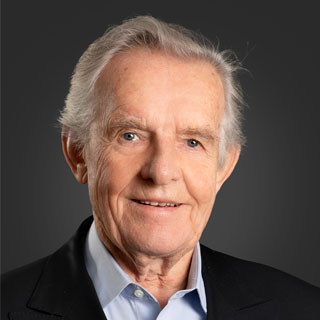
Born in Rauland, Norway, a small mountain village with only 1,500 residents, Tore Godal’s first dreams of adventure came from the fairy tales his mother read to him.
Over a career spanning five decades, Godal advanced the understanding and treatment of tropical diseases, overhauled the funding models used by the United Nations and the World Bank, convinced global leaders to invest heavily in the health care of children and mothers, and created a global vaccine initiative with the Bill & Melinda Gates Foundation.
Godal worked in Ethiopia as director of the Armauer Hansen Research Institute, with the World Health Organization (WHO) to set up the Special Program for Research and Training in Tropical Diseases, and as a senior researcher at the Norwegian Radium Hospital.
In 1999, he forged a historic compromise between the WHO, the World Bank, the United Nations Children’s Fund, pharmaceutical companies, and government agencies to improve the distribution of vaccines to the world’s most vulnerable children. The result was the Global Alliance for Vaccines and Immunization, now known as Gavi, the Vaccine Alliance. Gavi has vaccinated more than 822 million children in poor countries.
After his five-year stint heading Gavi, Godal returned to his native Norway to serve as special advisor to then-Prime Minister Jens Stoltenberg and convinced Norway’s leader to take a global lead on maternal and child health. The country increased funding from 300 million Norwegian kroner to 2.4 billion.
Since then, Godal has remained in Norway but continued his global crusade through various roles in the Norwegian government. He helped develop the research and financing tools to combat polio, Ebola, Sars-2, and COVID-19, and helped organize the Coalition for Epidemic Preparedness Innovations that was launched in 2017.
The Lancet medical journal dubbed the soft-spoken, snow-skiing Norwegian the “quiet colossus of global health” as he approached retirement in 2019. Also that year, he was awarded the King’s Medal of Merit for his work on immunization and global health at the University of Oslo.
Godal will receive an honorary Doctor of Science degree from the University during the Wednesday morning ceremony.
Wednesday, May 11, 3 p.m.; Adalberto Jordan, judge for the United States Court of Appeals for the 11th Circuit: School of Law ceremony.
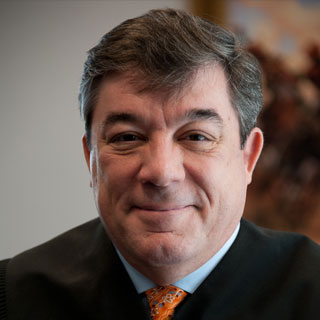
In 2012, Judge Adalberto “Bert” Jordan, a 1987 graduate of the School of Law, became the first Cuban American to serve on the U.S. Court of Appeals for the 11th Circuit in Atlanta, winning confirmation by a 94-5 vote in the Senate. He is known throughout legal circles for his even-handed approach to his rulings on appellate matters.
Born in Havana, Cuba, Jordan came to Miami with his family in 1968. He quickly learned English in elementary school, began playing baseball, and found himself interested in a legal career. At St. Brendan High School, he took several law-related courses before graduating in 1980.
As an undergraduate at the University of Miami, Jordan majored in politics and public affairs in the College of Arts and Sciences, taking classes on topics like constitutional and environmental law. He also made the varsity baseball team as a utility infielder under legendary coach Ron Fraser. He earned his bachelor’s degree in 1984.
After law school, Jordan served as a clerk for Judge Thomas Alonzo Clark on the 11th Circuit Court of Appeals, followed by a second clerkship for Justice Sandra Day O’Connor on the U.S. Supreme Court.
He then spent five years as an associate, and later partner, for the local firm Steel, Hector, and Davis. Jordan then moved to the public sector, handling appellate matters as an assistant U.S. attorney for the Southern District of Florida. In 1998, he was named chief of the appellate division.
A year later, President Bill Clinton nominated Jordan to the U.S. District Court for the Southern District of Florida, and he was confirmed in a 93-1 vote. In 2012, President Barack Obama nominated Jordan to the 11th Circuit Court of Appeals, which has jurisdiction over Florida, Georgia, and Alabama.
Since joining the School of Law’s adjunct faculty in 1989, Jordan has taught courses on federal courts, federal criminal practice, capital punishment, and judicial writing. He is a member of the American Law Institute and the Judicial Advisory Board of the American Society of International Law.
Thursday, May 12, 10 a.m.; Ricardo Lagos, former president of Chile: graduate degree ceremony for the Graduate School, College of Arts and Sciences, College of Engineering, Rosenstiel School of Marine and Atmospheric Science, Miller School of Medicine, and School of Nursing and Health Studies.
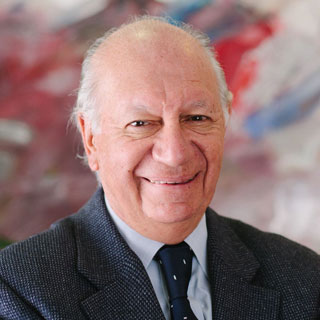
A noted lawyer, academic, and economist, Ricardo Lagos became president of Chile in 2000, remaining in office until 2006, and is considered one of the best presidents the country has ever had.
During his tenure, Lagos initiated economic and social reforms that pulled the country out of a recession, reduced poverty, and led to substantial improvements to the country’s infrastructure.
His administration increased international trade and helped launch a health system called AUGE that ensured easier access to medical care. The administration also led and won the legal battle to establish the country’s first divorce law.
After his presidency, Lagos established the Foundation for Democracy and Development, an organization that strives to create projects to improve the lives of ordinary citizens using the latest technologies. He has served as president of the Club de Madrid, a professor at Brown University, and a United Nations Special Envoy on Climate Change.
Lagos graduated with a law degree from the University of Chile in 1960, and he received a Ph.D. in economics from Duke University in 1966. He has authored several books, including “The Southern Tiger: Chile’s Fight for a Democratic and Prosperous Future” and “My Life Memorias I, Fight against Dictatorship” and “Memorias II, Governing for Democracy.”
Lagos will receive an honorary Doctor of Humane Letters during the ceremony next week.
Thursday, May 12, 3 p.m.; Catherine Lhamon, assistant secretary for civil rights, United States Department of Education: graduate degree ceremony for the Graduate School, School of Architecture, the Miami Herbert Business School, the School of Communication, the School of Education and Human Development, and the Frost School of Music.
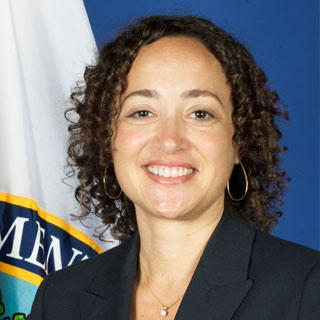
Catherine Lhamon chose to pursue a career championing civil rights. After many years of serving in various governmental and leadership capacities, she now is serving a second term as assistant secretary for civil rights at the Department of Education.
Born August 5, 1971, in Richmond, Virginia, and later raised in Palo Alto, California, Lhamon displays a rigorous dedication to policy shaping and racial justice. In 1993, she earned her Bachelor of Arts from Amherst College, where she graduated summa cum laude in American studies. In 1996 she earned a Juris Doctor from Yale Law School, where she was named Outstanding Woman Law Graduate.
Litigating civil rights cases across the country as director of impact litigation at the nation’s largest pro bono law firm, Public Counsel, Lhamon caught the attention of former President Barack Obama. And in August 2013, she moved to Washington, D.C., to serve as the assistant secretary for civil rights at the Department of Education. In that role, Lhamon enforced federal civil rights laws in schools.
During her three years working in the Obama Administration, Lhamon succeeded in enforcing the Department of Education’s key civil rights policies. Under her leadership, a 20-page letter, called the “Dear Colleague Letter,” was introduced. The document advised districts how schools should respond to reports of sexual harassment to ensure compliance with Title IX.
In 2015, Yale Law School named her a Gruber Distinguished Lecturer, and the Association of University Centers on Disabilities awarded her with their Special Recognition Award. In addition, Lhamon’s work has been acknowledged by Politico Magazine, which named her as one of the 50 thinkers, doers, and visionaries transforming American politics in 2016.
Lhamon also will receive an honorary Doctor of Humane Letters during Thursday’s afternoon ceremony.
Friday, May 13, 8:30 a.m.; L. Rafael Reif, president of the Massachusetts Institute of Technology: undergraduate degree ceremony for the College of Arts and Sciences and Division of Continuing and International Education.
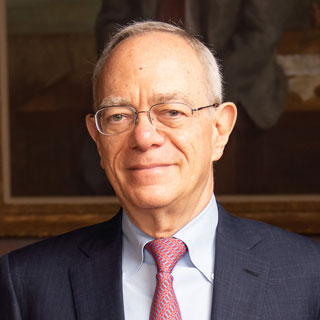
As president of the Massachusetts Institute of Technology (MIT), L. Rafael Reif believes in the power and potential of innovative ideas and great talent—wherever they come from. Under his leadership, MIT has welcomed students from across the world and from all backgrounds, including students who are immigrants or come from immigrant families.
Reif’s parents fled Eastern Europe for South America in the 1930s, eventually settling in Venezuela, where he was born. He earned a bachelor’s degree in engineering at the Universidad de Carabobo and then a Ph.D. in electrical engineering at Stanford University.
A naturalized citizen, Reif is outspoken in his support for immigration, which he has described as “a kind of oxygen.” A champion of educational opportunity for all, Reif believes that universities have a responsibility to serve society—not only by preparing students to become leaders, but also by directing the talent and tenacity of the university communities toward solving the world’s most complex problems.
While Reif will step down from serving as MIT’s 17th president in December, the distinguished engineer has led the technology powerhouse since 2012, overseeing visionary expansion at the top-tier institution and leading the development of Boston’s Kendall Square neighborhood into the world’s leading biotech hub. When he saw that many important ideas with enormous potential were not making it out of the lab, in 2016 he created The Engine, a venture firm to provide early startups with the time and resources to bring their ideas to the marketplace.
Before becoming MIT’s president, Reif served as provost from 2005 to 2012. He first arrived at MIT in 1980 as a young faculty member and has served as head of the Department of Electrical Engineering and Computer Science and as director of MIT’s Microsystems Technology Laboratories.
Reif is a fellow of the Institute of Electrical and Electronics Engineers, and in 2000, he received the Semiconductor Research Corporation’s Aristotle Award. He is a board member of the Council on Foreign Relations and an elected member of the American Academy of Arts and Sciences, the National Academy of Engineering, and the Chinese Academy of Engineering. He also is the inventor or co-inventor on 13 patents.
He will receive an honorary degree from the University during Friday’s morning ceremony.
Friday, May 13, 1 p.m.; Paula Kerger, president and chief executive officer of PBS: undergraduate degree ceremony for the School of Architecture, the School of Communication, the School of Education and Human Development, the Rosenstiel School of Marine and Atmospheric Science, the Frost School of Music, and the School of Nursing and Health Studies.
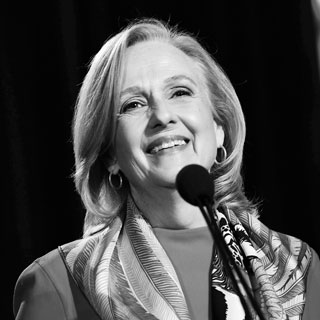
Paula A. Kerger is president and chief executive officer of PBS, the nation’s largest non-commercial media organization representing more than 330 member stations throughout the country. She is the longest-serving president and CEO in PBS history and serves as president of the PBS Foundation, which provides a significant source of revenue for projects that benefit the entire public television system.
Over the past 15 years, Kerger has led the transformation of PBS from a broadcaster to a multiplatform digital media organization which delivers on public television’s essential mission of education, inspiration, and service to the U.S. public.
A native of Baltimore, Kerger’s appreciation for public media began at an early age—due in large part to her grandfather, who helped found the city’s public radio station.
Prior to joining PBS, Kerger served for more than a decade at the Educational Broadcasting Corporation, the parent company of Thirteen/WNET and WLIW21 New York, where her ultimate position was executive vice president and chief operating officer. She also held roles at the Metropolitan Opera, International House, and U.S. Committee for UNICEF.
Kerger has been honored with the Giants of Broadcasting Award; the Advancing American Democracy Award from the Benjamin Harris Presidential Site; the Woman of Achievement Award from Women in Development, New York; the National Education Association Friend of Education Award; Promax/BDA, B&C and Multichannel News Brand Builder Award; and the Realscreen Hall of Fame Award.
She received her bachelor’s degree from the University of Baltimore, where she serves on the Merrick School of Business Dean’s Advisory Council. She also currently serves as a DC Fellow at the University of Virginia’s Darden School of Business.
Kerger is a member of the Council on Foreign Relations, the Academy of Arts and Sciences, and the Women’s Forum. She serves as a director of the International Academy of Television Arts and Sciences. She has been a board member for the Meredith Corporation and is the former chair of the Smithsonian Institution’s National Museum of Natural History.
Kerger will receive an honorary degree from the University during Friday afternoon’s ceremony.
Friday, May 13, 5:30 p.m.; Johnny C. Taylor, Jr., president and chief executive officer of the Society for Human Resource Management and vice chair of the University’s Board of Trustees: undergraduate degree ceremony for the Miami Herbert Business School and College of Engineering.
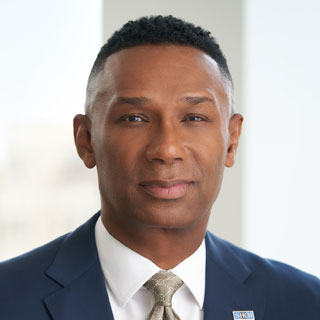
Valedictorian of his senior class at Dillard High School, Johnny C. Taylor, Jr., was an Isaac Bashevis Singer Scholar at the University of Miami and graduated with a Bachelor of Science in Communication with honors in just three years. He went on to earn a joint Master of Arts in Communication and Doctor of Jurisprudence with honors from Drake University.
Following a successful corporate career as an attorney and human resources executive, Taylor decided to retire. But within a year, he decided to devote his time to leading the Thurgood Marshall College Fund representing the nation’s 47 publicly supported Historically Black Colleges and Universities. During his tenure, Taylor became a prolific fundraiser raking in more than $100 million for HBCUs and their students.
Now the president and CEO of the Society for Human Resource Management, the world’s largest HR professional society with more than 300,000 members in 165 countries, Taylor regularly advises corporate executives and elected policymakers on all issues—from sexual harassment to paid leave—that affect work, workers, and the workplace. A global leader in human capital and culture, he is a Wall Street Journal best-selling author and frequently invited to testify before Congress and other governments around the world on workplace matters.
Recently, Taylor made a generous gift establishing a permanent exhibit at the University’s Coral Gables Campus honoring the legacy of the school’s first Black graduates. The Taylor Family/UTrailblazers Experience documents the history of the University’s decision to admit Black students and highlights Black student and faculty contributions at the University of Miami from 1961 until the present.

